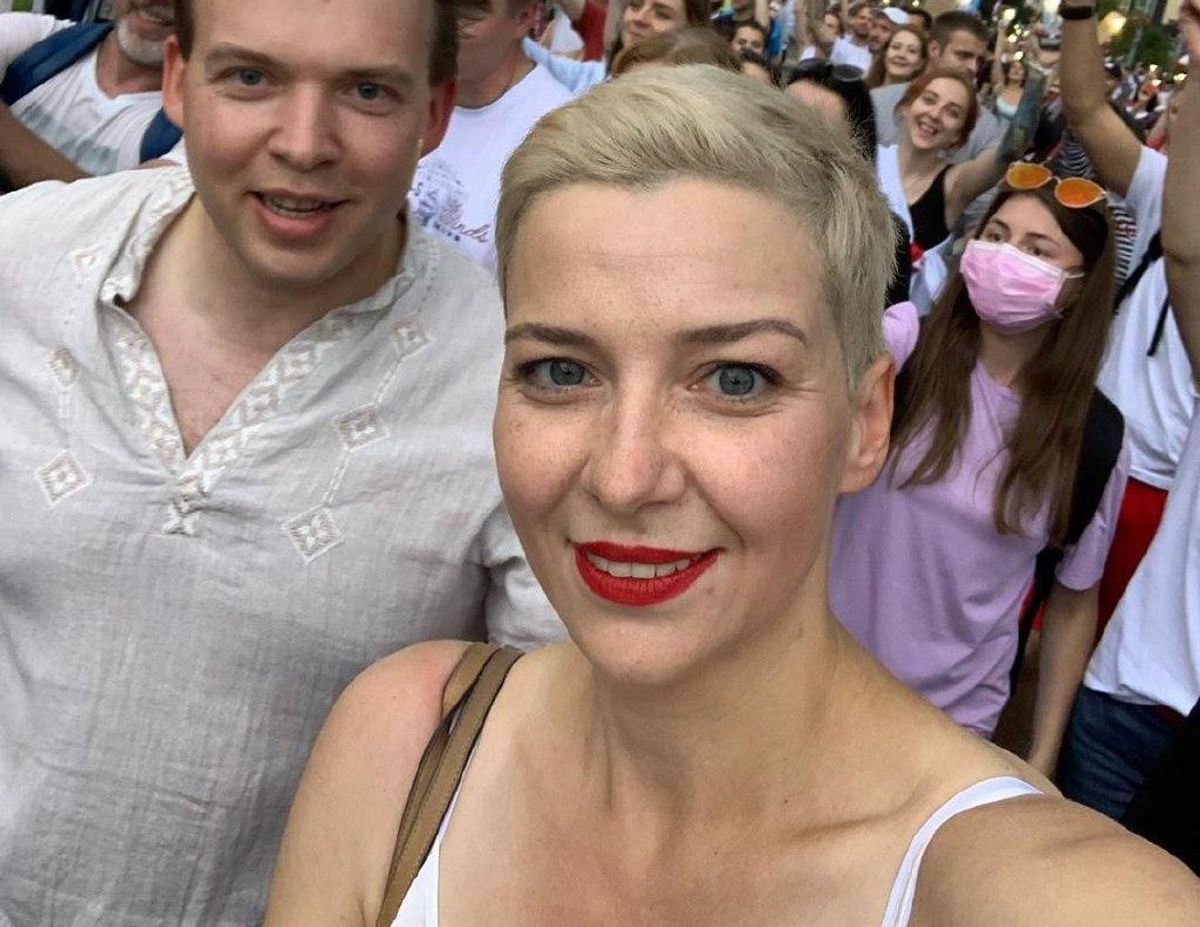Maria Kolesnikova, a musician and contemporary arts promoter who has become the de facto leader of Belarus’s opposition to dictator Aleksandr Lukashenko, has been arrested and is facing charges of planning a coup d'état after being kidnapped on Monday by men in a van outside the National Art Museum and taken to the Ukrainian border.
In an interview with Russian journalists who flew in to support him on Tuesday, Lukashenko said Kolesnikova was trying to flee, but two fellow activists who witnessed her actions said at a news conference in Kyiv on Tuesday that she had torn her passport into small pieces, thrown it out the car window and walked back to the Belarus border.
One of them, Ivan Kravtsov, called Kolesnikova “a real hero” for showing such fortitude after hours of questioning by security agents.
There was no further information on her whereabouts until Wednesday. Her lawyer said she is now a suspect in a coup d'état case opened against the opposition.
Kolesnikova ran the united opposition campaign headquarters of Svetlana Tikhanovskaya who ran against Lukashenko and challenged his official result of over 80% of the vote with 10% for her. Tikhanovskaya's supporters claim the actual numbers are in reverse. she was forced to flee to Lithuania and other members of the opposition’s coordinating council presidium were forced to go to Poland, including Pavel Latushko, a former diplomat and culture minister.
Before the opposition joined forces, Kolesnikova had run the campaign of Viktor Babariko, a banker and art collector who was arrested after challenging Lukashenko in the race. Previously she had been the art director of OK16 a contemporary arts hub in Minsk in a converted industrial space that had been opened by Belgazprombank, then under Babariko’s chairmanship.
A flute player who studied in Stuttgart, Kolesnikova, 38, has not been seen in public since she walked with the crowd at the 6 September demonstration, dressed in the red and white colours of Belarus’s historical flag, which the Lukashenko regime has banned.
The Lukashenko regime’s crackdown continues to target Belarus’s contemporary arts community. Last week, Aliaksandr Vasilevich, the owner of contemporary culture and politics news sites and a contemporary art gallery, Y Gallery, was arrested on 28 August, and police are investigating his pregnant wife, an advertising executive, as well. On 7 September, Viasna, a Belarusian human rights organisation, recognised him as a political prisoner.
On Tuesday, Nadya Sayapina, a contemporary artist in Minsk was sentenced to 15 days in prison for a performance about Belgazprombank’s art collection, which was seized by the state in June.


